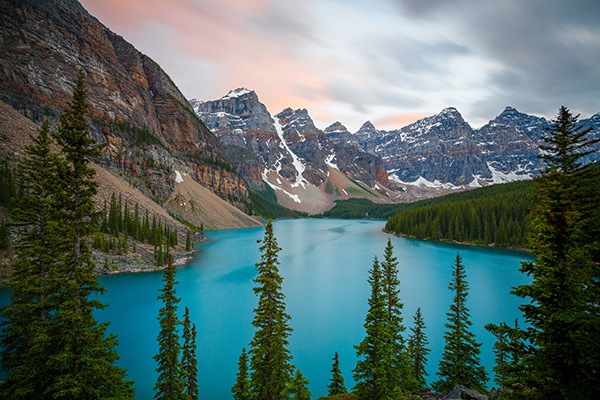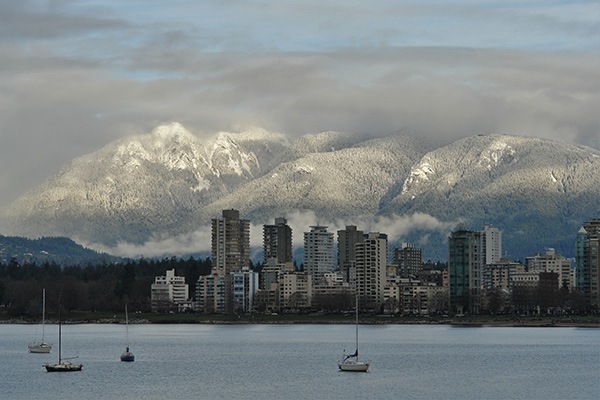Have you ever considered moving to Canada?
Wide expanses of wilderness, soaring craggy mountains, glittering glaciers, lush forests, and idyllic beaches make up some of the breathtaking diverse natural scenery that Canada is famous for.
Aside from the incredible Canadian great outdoors the cities are cultured, cool and multicultural, the Canadian people are incredibly welcoming, the cuisine is exceptional — Canada is a place with a wealth of things to offer, a place to dive into and explore.
Tempted by all that this wonderful (and vast) country has to offer, increasingly more Brits are moving to Canada from the UK.
Thinking about joining them?
Here’s our guide on how to move to Canada…
Contents
Best Places to Live in Canada
Vancouver
Repeatedly touted as one of the best places to live in the world, the ocean side city of Vancouver has the perfect blend of nature and culture.
Located on Canada’s west coast in British Columbia, Vancouver enjoys one of the most temperate climates in the country, with mild somewhat rainy winters and pleasant dry summers.
Just 30 minutes drive away from magnificent mountain ranges, and sitting right on the Pacific coast, Vancouver is somewhere you can ski or snowboard and laze on the beach in the same day, and in the middle of the city lies the expansive green oasis of Stanley Park — 1,000 acres of forest, hiking and biking trails, wildlife, beautiful beaches, and gorgeous gardens.
The lifestyle is healthy here, with the citizens making the most of the abundance of outdoor activities on offer.
The culinary scene in Vancouver is equally impressive, as thanks to its myriad multicultural inhabitants, cutting edge cuisine from all over the globe can be found in the city’s chic restaurants — with freshly caught seafood featuring prominently on menus, and a thriving Chinatown with Asian food galore.
This is a vibrant, creative city too, with an impressive array of theatres, regular festivals, live music events, galleries, and more.
Every day in Vancouver offers something different, and that’s why the people who live here, love it.
Toronto
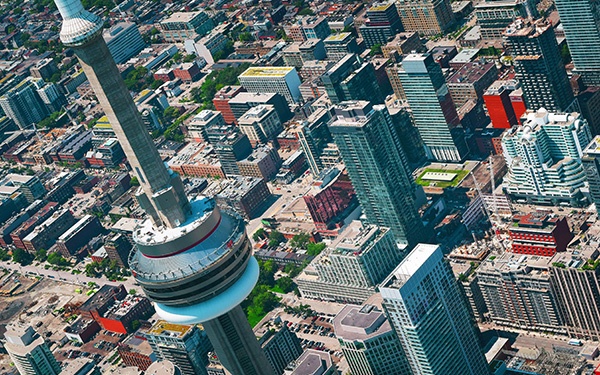
Canada’s largest city, Toronto has a large student population which makes it fun and fresh, and with roughly half of the population originating from countries other than Canada, it’s incredibly culturally diverse with an amazing international buzz.
Located on the shores of stunning Lake Ontario, summers in the city are sunny and pleasant but sometimes humid, and winters can get pretty cold — but that’s the time to follow the locals, strap on a pair of skates and take to the ice.
Spring and summer is the time to bask outside and make the most of everything the city has to offer.
There is plenty to see and do here, from galleries, theatres and bustling markets, to hip bars, cozy cafes, and world class dining.
Downtown is the city’s financial hub, with a jagged skyline made up skyscrapers and excellent city views.
Toronto’s wonderful waterfront offers a gateway to the Toronto Islands, a mini archipelago with a relaxed ambience where cars are banned to preserve the tranquility of the woodlands, gardens, and pretty cottages that are found here.
Calgary

Nestling in Canada’s vast grassy Prairies between Ontario and British Columbia, a couple of hours drive from the Rocky Mountains, Calgary is a pleasant city split into two sections by the magnificent Bow River which weaves its way through the centre.
In winter Calgary is well placed for visiting mountain ski resorts, and in summer it plays host to the Calgary Stampede — a crazy outdoor cowboy fun fest with rodeos, live music, funfairs, fireworks, acrobatics and more which gives the city a year round western flavour.
In the last couple of decades Calgary has experienced something of a rebirth, and has evolved into a bright and energetic city with a blossoming arts scene, first-class restaurants, artisan cafes and craft beers, museums, leafy parks and wonderful opportunities for walking and cycling along the riverside.
Ottawa
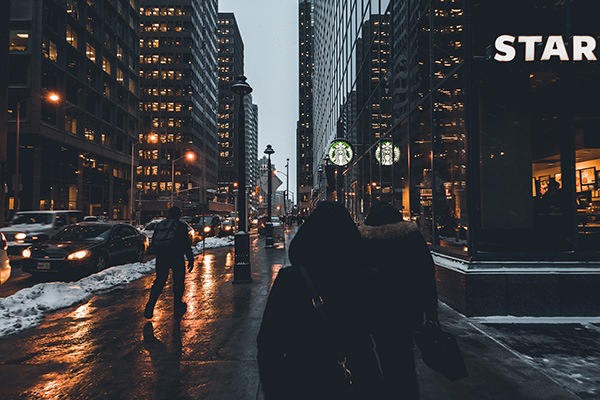
Gorgeously grand Ottawa is Canada’s capital city, and it occupies a privileged location on the banks of the Ottawa River east of southern Ontario.
This is a city with a wealth of charm and elegance, dotted with fine examples of Victorian gothic architecture and graced with an historic canal waterway which in winter (when temperatures stay well below zero) becomes the world’s largest ice rink, and in summer is a hive of activity for boats and kayaks.
Ottawa is a melting pot of French and Canadian cultures, and most residents are bilingual with both French and English being in regular use.
The city also boasts some world class museums, a thriving historic market with bars, restaurants and live music, and is very family friendly.
Montreal
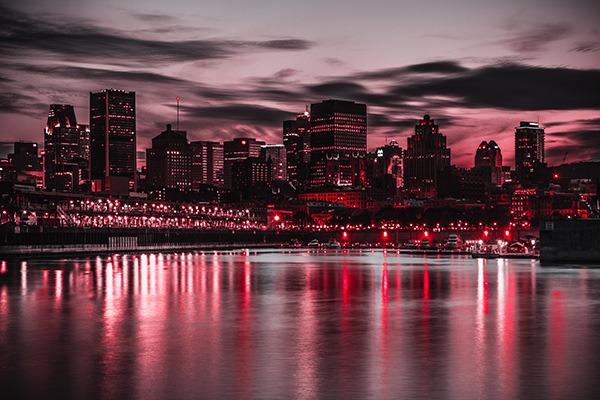
Deeply rooted in its French origins, Montreal is a city with lots of history and plenty of flair.
It sits on a great island at the confluence of the Saint Lawrence and Ottawa rivers in the province of Quebec.
The cobbled streets of the old town wind their way past quaint French colonial buildings.
At the heart of the city lies Mount Royal, an iconic hill which is home to a spectacular urban park, cemeteries, monuments and historical landmarks.
Winters in the city can be long and severe, but they provide the perfect opportunity to make the most of Montreal’s incredible restaurants , bars, and clubs — the delicious cuisine here has a distinct Gallic flavour, the bars are hip with cool live jazz.
Alternatively Montreal residents take to the nearby slopes. The coming of summer is celebrated with numerous festivals – one of which is the world’s largest jazz festival.
Burlington
A prosperous and safe city, Burlington sits on the shores of lake Ontario between Toronto and Niagara Falls, and has been voted as one of the best places in the country to live.
Burlington’s biggest attraction is arguably the world-renowned Royal Botanical Gardens (the largest in Canada), whose stunning floral displays include the world’s largest lilac collection.
Adventurers will love the nearby hiking, biking and climbing trails of the magnificent Niagara Escarpment, a UNESCO World Biosphere Reserve, and in winter there are snow sports to be enjoyed.
Spring and summer is when the waterfront and historic downtown come to life with music festivals, food festivals, and other activities and events.
The Burlington arts and culture scene is also lively, boasting museums, galleries and theatres.
Edmonton

In the province of Alberta, Edmonton is one of Canada’s most northerly cities.
The North Saskatchewan River flows through the urban landscape, diving downtown with its Royal Albert Museum and huge new hockey stadium from the elegant Old Strathcona area, featuring historic architecture and a plethora of buzzing bars and cutting edge restaurants.
The vast West Edmonton Mall has been attracting shoppers for years, and even boasts its own roller coaster.
Long, freezing winters mean plenty of winter sports can be enjoyed, and Edmonton is far enough north that you may even catch a glimpse of the aurora borealis.
The majority of the city’s festivals take place in the summer months between June and August.
Winnipeg
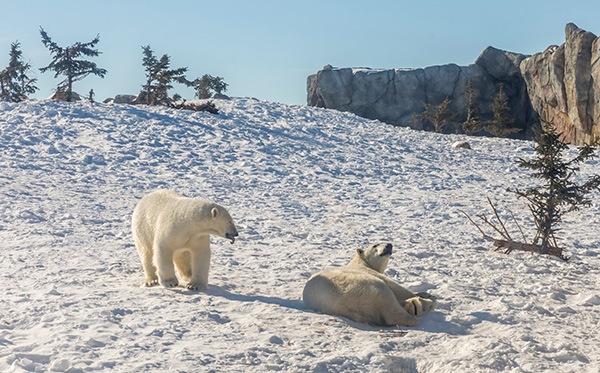
Wonderful Winnipeg is the capital of the province of Manitoba, and has been described as the “cultural cradle of Canada”.
The epicentre of all this cultural activity — and the real focus of the city — is The Forks in the heart of downtown, which for 6,000 years has been a meeting place for traders, and now offers an amazing array of year round entertainment and events including concerts and exhibits, markets, pretty parks and gardens, hiking trails, canoeing, first rate gastronomy, cool bars, and excellent shopping.
The nearby Exchange District is renowned for its fine examples of early 20th century architecture and wealth of art galleries and theatres.
This district is also the heart of Winnipeg’s nightlife, and with a huge choice of bars and clubs is the hip place to hang out.
Halifax
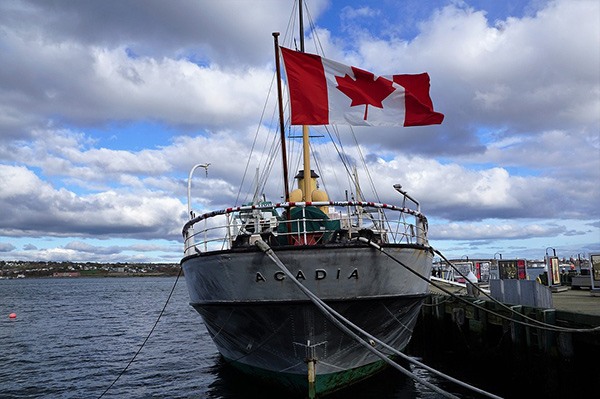
A naval town in Nova Scotia on Canada’s east coast, Halifax is blessed with rolling seascapes, stunning sunsets, a rich maritime history, a spirited student population, lush gardens and parks, a flourishing arts and theatre scene, fantastic food, and great nightlife.
The city has youthful ambience with a historic backdrop, and is a centre of commercial success.
The Halifax Seaport Farmers Market has been operating for hundreds of years, and is where over 250 local farmers and producers sell their wares.
Halifax’s natural harbour no longer serves a naval purpose, instead it has been used to create a fantastic waterfront boardwalk lined with eclectic shops and galleries, museums, and as some of the city’s finest restaurants and cafes.
The harbour is symbolic of the soul of this city, as a unique blend of influences both traditional and contemporary, somewhere as relaxed as a small town but all the perks of a booming big city.
How to Move to Canada
Visas
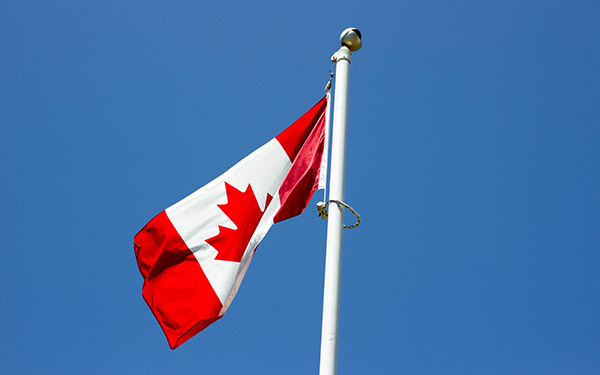
British citizens require a visa to live and work in Canada, and applications are judged on whether the Canadian government thinks you will be an asset to the economy.
You can get an good idea as to whether or not your visa application will be accepted on the Canadian Citizenship and Immigration service website thanks to their online ‘Visa Wizard’.
There are several different types of visa available depending on your situation.
The most common of these is the express entry skilled workers and professionals visa but the application process can be lengthy — sometimes taking up to a year — and unless you have a job already in place you will need to prove that you can financially support yourself whilst looking for work.
An additional requirement is successfully passing a medical exam.
There are also visas for entrepreneurs and family visas. Applications can be made online.
Health
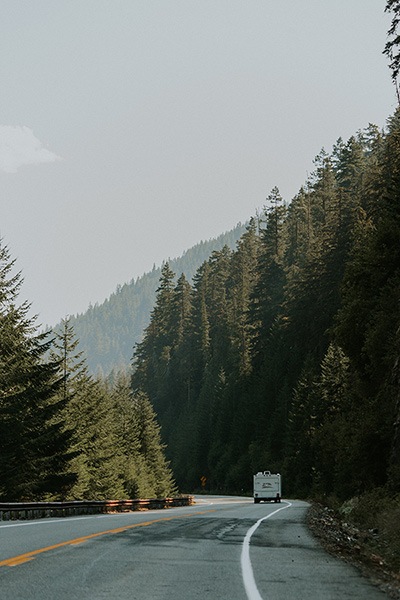
Just like the NHS in the UK, Canada has its own public health system, but there are certain differences.
Each Canadian province has its own ministry of health and its own health insurance card, and levels of free health care coverage can vary.
Typically, wherever you are in Canada the health coverage includes visits to the doctor, anything that is deemed a medical emergency, hospital costs, vaccinations and operations.
Dental costs and other services such as visiting the chiropractor or optician may only be partially covered.
On arrival in Canada, British expats may not be entitled to free health care, as depending on the province there is sometimes a waiting period for new residents before they can apply, and certain residency conditions may need to be met.
Those who don’t qualify for free health care will need to take out a private health insurance plan (usually covering the first three months) within five days of arriving in their new province or territory.
Work
The job market in Canada is encouraging and levels of unemployment are very low, with vast numbers of new jobs being created on an ongoing basis thanks t the booming economy.
Expats working in Canada require a work permit to work legally, as well as a social security number which must be applied for on entry to the country.
Here’s a good video on the cost of living in Canada so you can get an idea of potential income levels:
A wide range of jobs are available — both temporary and permanent — ranging from seasonal work in the hospitality industries to highly skilled professional roles.
Financial services and communications are continually expanding sectors, as well as manufacturing sectors. Speaking both English and French can greatly boost your chances of finding employment in the bilingual province of Quebec.
Most jobs in Canada require at least a high school diploma or equivalent. Most professional level jobs require at least an undergraduate degree or equivalent.
Workers with an excellent level of English who have significant experience in their chosen field are more likely to be selected for professional positions, and all qualifications should be verified to ascertain whether or not they are officially recognised in Canada.
Are you planning to move to Canada?

